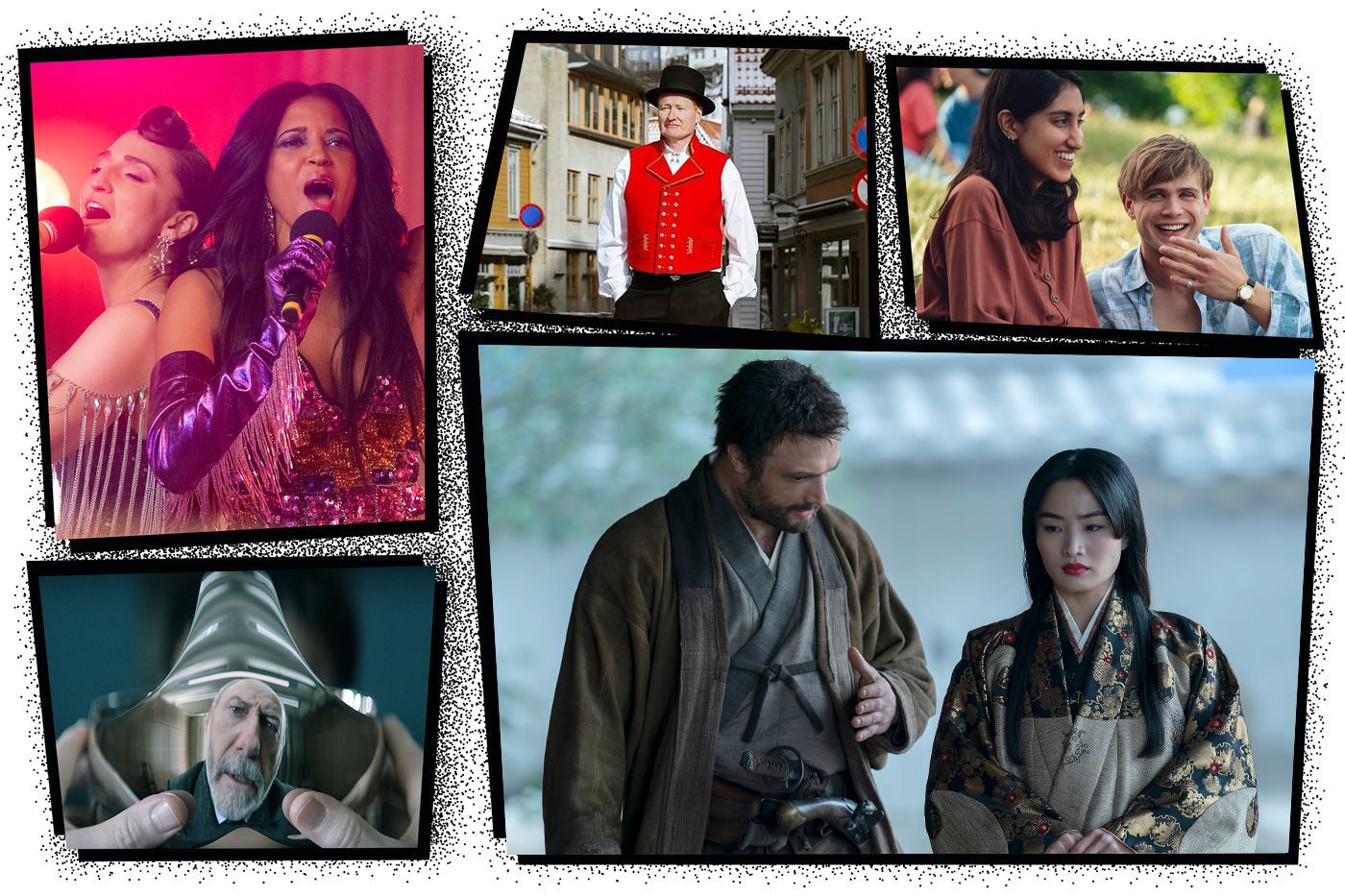
This list is updated monthly with new “best of the year” worthy titles.
It’s too soon to say how the 2023 Hollywood strikes will shape the industry in the long term, but here in the short term, it’s clear that television is still in its strike-hangover period. Last year’s production delays are this year’s slow-to-start TV calendar, as networks and streamers parcel out their already completed and/or international content while delayed series get back on their feet. The silver lining of this current drought, however, is that it’s proportional to the absolute deluge of television we were getting only a short time ago — there may be fewer buzzy new shows overall, but the ratio of good TV within that number is still high. We may never again reach the dizzying heights of peak Peak TV (and that may actually be okay), but as one of this year’s early comedic standouts, Girls5eva, taught us, there are rewarding highs to be found in “the medium time,” too. Here, the 2024 shows that are keeping us optimistic as we watch TV’s new era take shape.
This list includes 2023 series that aired the majority of their season after Vulture closed its “Best of the Year” list. All shows are listed by season-premiere date, starting with the most recent releases.
Conan O’Brien Must Go (Max)
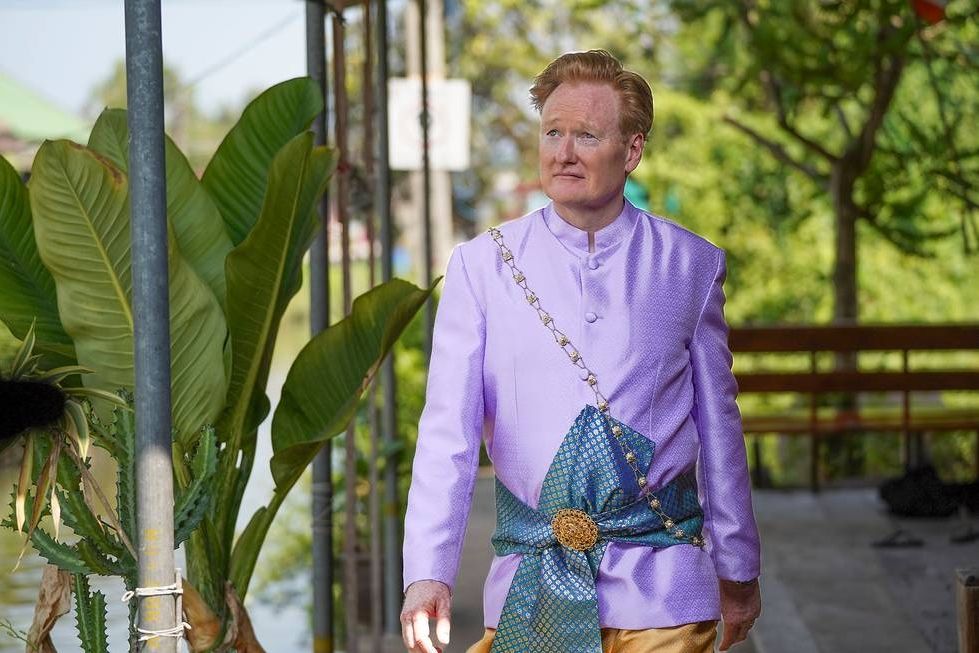
In the deliberately intense introduction to each episode of this travel series/excuse for Conan O’Brien to act like a freak on multiple continents, filmmaker Werner Herzog states: “To truly appreciate the astounding grandeur of this planet, sometimes you must defile it. Behold: the defiler.” That defiler is, of course, O’Brien, who uses this expansion of both his Conan Without Borders specials and his podcast Conan O’Brien Needs a Fan to visit with admirers from all around the globe while also “learning about the culture.” That phrase is in quotes because Conan mostly finds fresh ways to make himself the butt of a joke, whether it’s attempting to learn the tango in Buenos Aires or gyrating all over the floor in a Dublin shop after sampling its black pudding. This series once again proves what comedy fans have always known: If you need a good laugh, just follow Conan wherever he may go. —Jen Chaney
➽ Read Jen Chaney’s full review of Conan O’Brien Must Go.
Under the Bridge (Hulu)
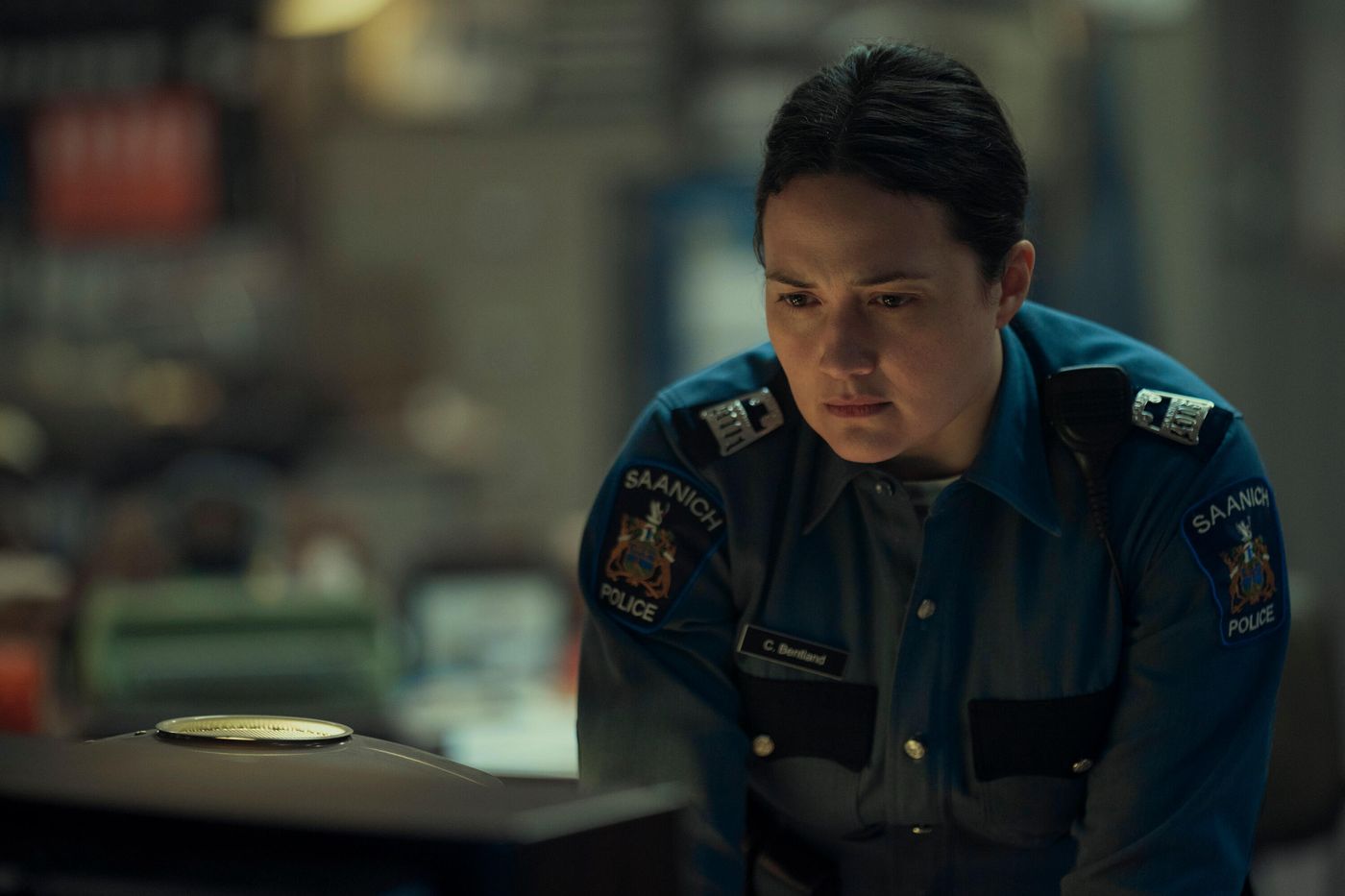
Yes, there is too much true crime, and yes, the genre too often relies on the violence inflicted on women and girls as entertainment. Under the Bridge creator and co-writer Quinn Shephard is aware of both these liabilities and of how easy it would be for the miniseries to dehumanize its central victim, Reena Virk, and to overly dramatize the events surrounding her death. To counteract expectations, Under the Bridge tackles them head on, experimenting with episodic form to give Reena (Vritika Gupta) her own fourth-wall-breaking voice; creating a cop character (Lily Gladstone) whose own First Nations heritage gives her a nuanced, complicated perspective on Reena’s life; and placing author Rebecca Godfrey (Riley Keough), whose same-named book inspired the miniseries, into the narrative to consider how media coverage helps reinforce certain stereotypes and prejudices. What those deliberate choices do is push Under the Bridge from a by-the-numbers recitation of a crime to an exploration of the many contradictory aspects of the feeling of belonging. Under the Bridge is captivated by the impacts of loneliness and loss and what they do to the relationships between a parent and a child, two friends grown apart, and lovers unsure of each other’s loyalties, and its collection of fantastic performances gives the series’ abstract concepts devastating life. —Roxana Hadadi
➽ Read Erin Qualey’s recaps of Under the Bridge.
Ripley (Netflix)

The story of the duplicitous and homicidal Tom Ripley, originally told by novelist Patricia Highsmith in The Talented Mr. Ripley, has been adapted numerous times for stage and screen, most notably in Anthony Minghella’s sun-kissed 1999 film. It’s a testament to the talents of Steven Zaillian, who wrote and directed all eight of these episodes, that this version feels aesthetically distinctive and newly compelling. Photographed in gorgeous, deeply dimensional black-and-white, Ripley is able to do something as a television series that a two-hour feature film can’t: linger in the practical horrors and tension of Ripley’s bad deeds. Played by the brilliant Andrew Scott with a sense of sinister reserve, Ripley doesn’t just — spoiler alert — kill people. He goes to physically exhausting lengths to cover up the murders, efforts that Zaillian captures in excruciating detail. In the end, what this excellent series shows us above all else is how easy it is to con others when you’re a seemingly wealthy, charming white man. —J.C.
➽ Read Roxana Hadadi’s review of Ripley; Hadadi’s interview with director and writer Steven Zaillian; and Rafaela Bassili’s recaps of the series.
3 Body Problem (Netflix)
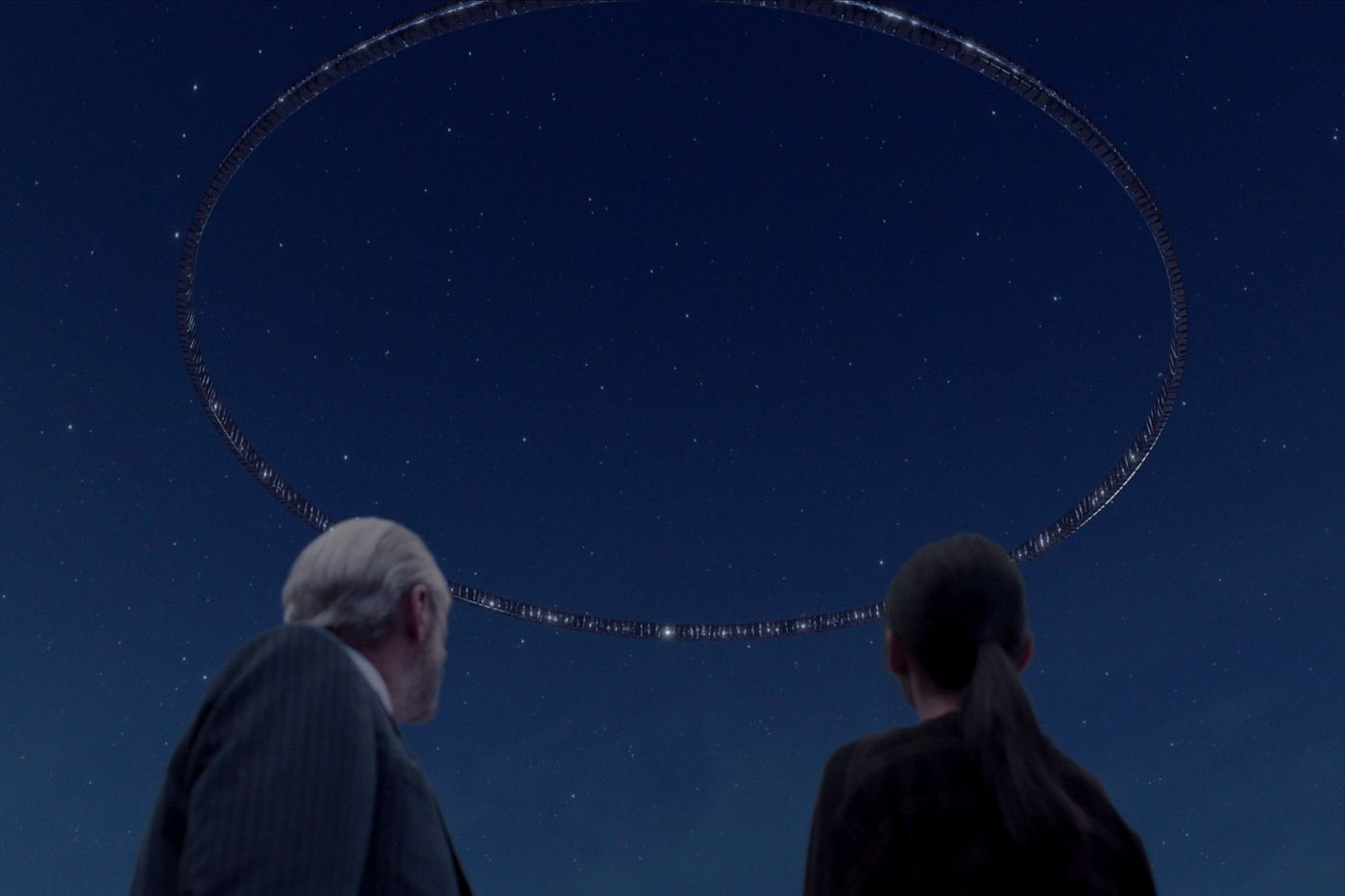
Despite its imperfections, 3 Body Problem reaches to a standard that too few Netflix dramas of recent years have attempted. It has a distinctive, sharp sense of scale and spectacle, and it tackles the challenge of its source text’s adaptation with confidence. The sense of doom and terror from the original novel remains, as do the thinkier, more abstract elements of its alien-invasion story, but it grounds all of that in newly created characters who can help anchor the plot. Sometimes it steers into cheesiness, especially as it emphasizes the toll this story takes on its young scientists, but that’s not a bad thing. Its emotions are big and intense, and all of that helps it overcome the damper of a few unfortunate performances. —Kathryn VanArendonk
➽ Read Kathryn VanArendonk’s full review of 3 Body Problem, Ben Rosenstock’s recaps, and Roxana Hadadi’s analysis of the ending.
Girls5eva (Netflix)
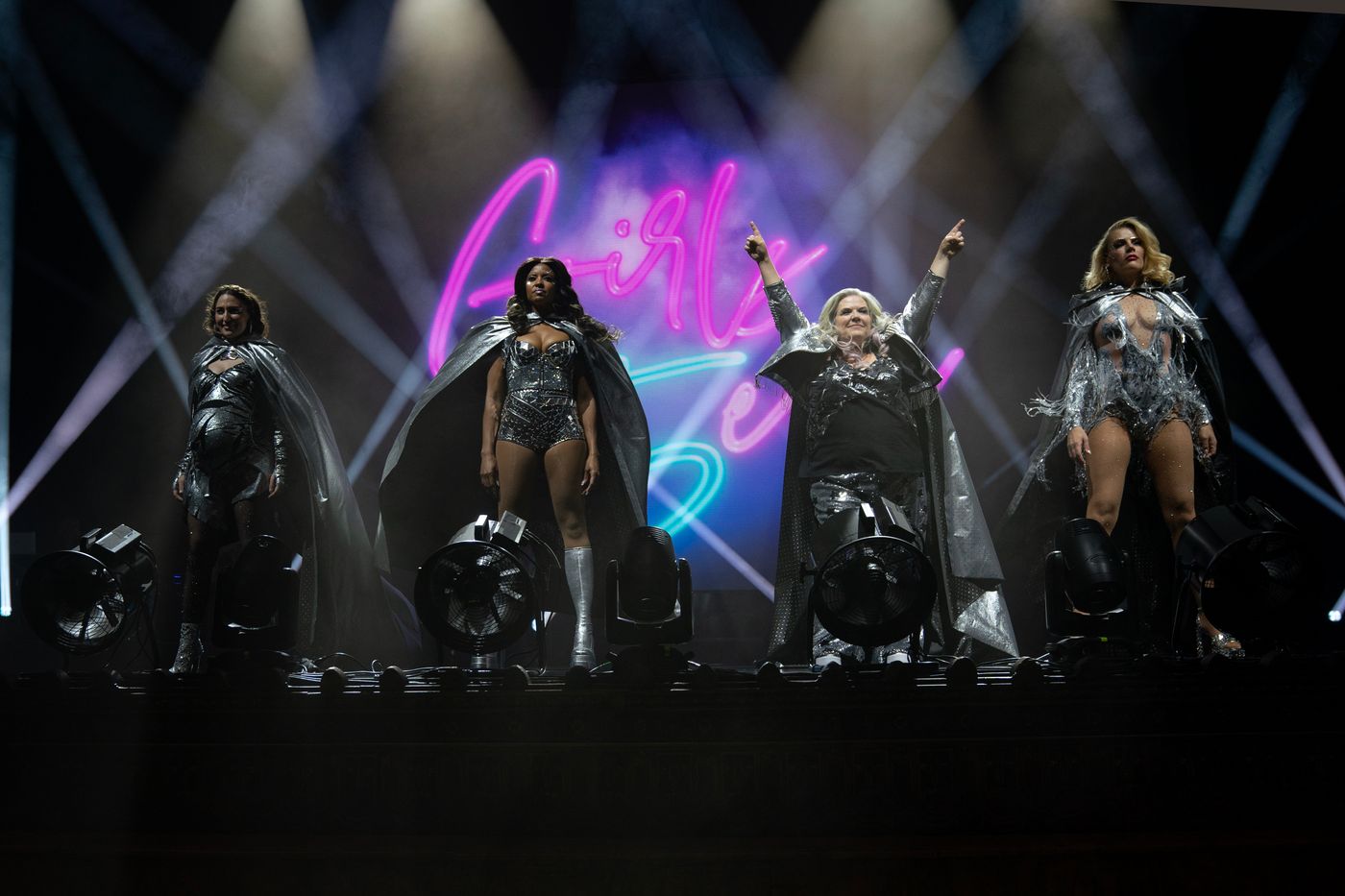
With its move from its original home on Peacock to Netflix, Girls5eva has become a series about a turn-of-the-millennium girl group seeking a second chance at stardom that is itself getting a second chance on a new streaming platform. Its third season is the perfect showcase for what makes this comedy such a spit-take generator. All four of the talented principal actresses — Sara Bareilles, Paula Pell, Busy Philipps, and Renée Elise Goldsberry as Wickie Roy, the diva-est diva to ever diva — get equal opportunities to shine. The cultural references generated by creator Meredith Scardino and her team of writers range from the of-the-moment — there are tons of Netflix gags and a Girls5eva country song built for this Cowboy Carter moment — to the delightfully obscure, including riffs on the comic strip “Andy Capp” and this 2004 incident involving Jessica Simpson and Jewel. As always, this show likes its comedy fast, wide-ranging, and relentless. Crack up too long at one joke and you’ll miss two or three more. That’s why they invented pause and rewind: so you can make sure to catch every absurd bit in this hilarious show. —J.C.
➽ Read Maggie Fremont’s Girls5eva season-three recap and Hadadi’s close look at the show’s most horrifying image.
Extraordinary (Hulu)

The first season of this British comedy, set in a version of East London where everyone discovers a unique superpower at the age of 18, was very good. The second season, in which 25-year-old Jen (Máiréad Tyers, a virtuoso of the dry line delivery) is still waiting for her unique gift to reveal itself, is flat-out great. Series creator Emma Moran engages in world-building on a grander, more whimsical scale, weaving in details — like a restaurant called Little Italy that requires patrons to shrink before entering — worthy of a Charlie Kaufman film. Extraordinary never takes things into overly twee territory, though. Its comedic sensibility is too sardonic for that, and its ultimate interests — in how (mostly) regular people deal with breakups, family conflicts, and grief — are rooted in reality to make this a series that’s both wild and completely relatable. —J.C.
➽ Read Chaney’s full review of Extraordinary season two.
Shōgun (FX, Hulu)
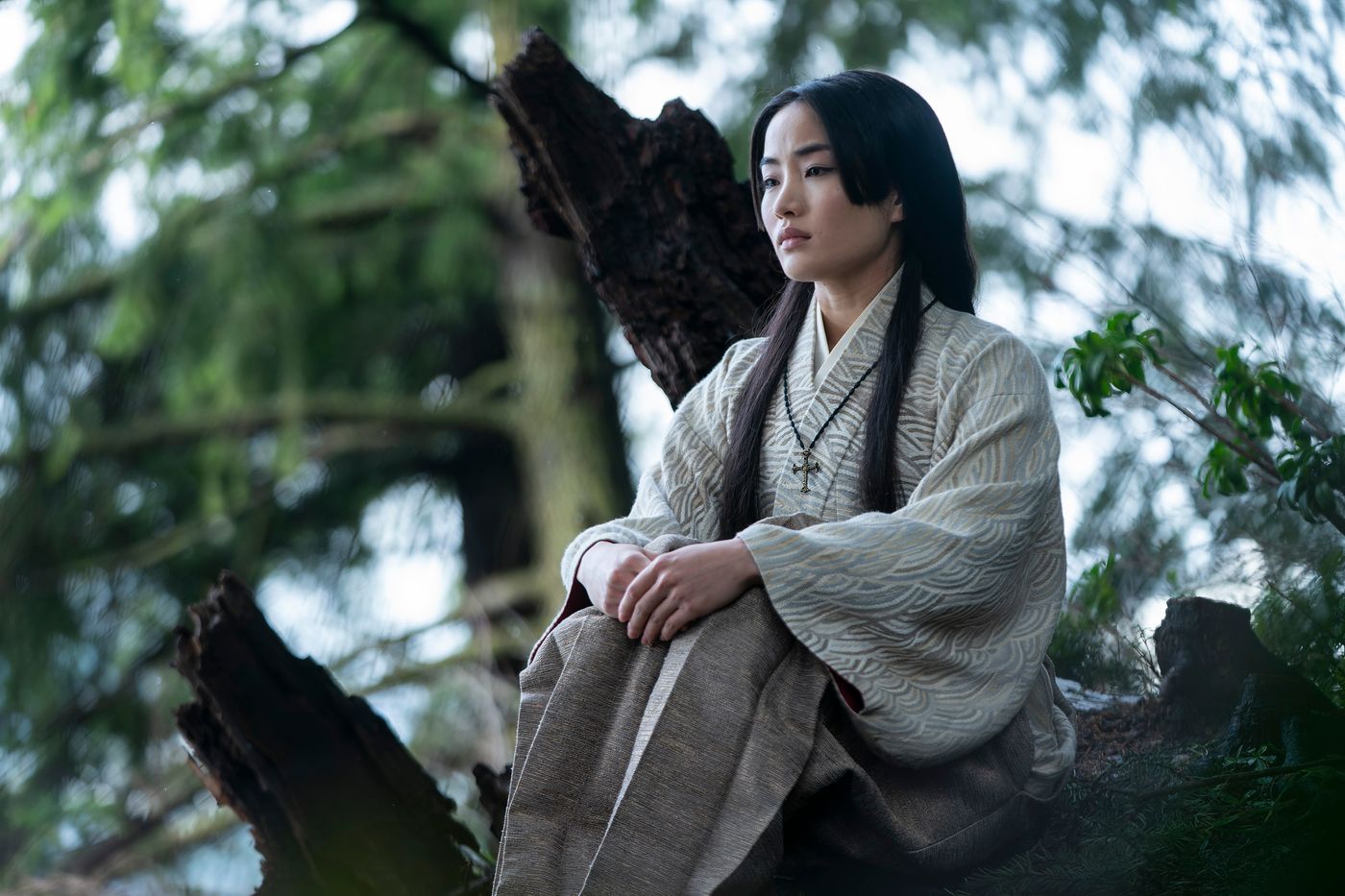
Lush, careful, violent, and full of subtle palace intrigue, Shōgun is a reminder that well-made dramas can still move the needle for both viewership and discourse. The performances are fantastic, especially those from Anna Sawai and Hiroyuki Sanada, and its remarkable cinematography and art direction are key to the show’s appeal. But at its core, Shōgun is a demonstration of confidence: It trusts its audience to invest in its characters, to be patient and attentive while its stories unfold. Even more importantly, though, it rewards that investment throughout. There’s no “just wait and it’ll get better.” It’s fully itself from the first moment. —K.V.A.
➽ Read Matt Zoller Seitz’s review of Shōgun; Roxana Hadadi’s interview with star Hiroyuki Sanada; Nicholas Quah’s interview with star Anna Sawai; and our recaps for the limited series.
One Day (Netflix)
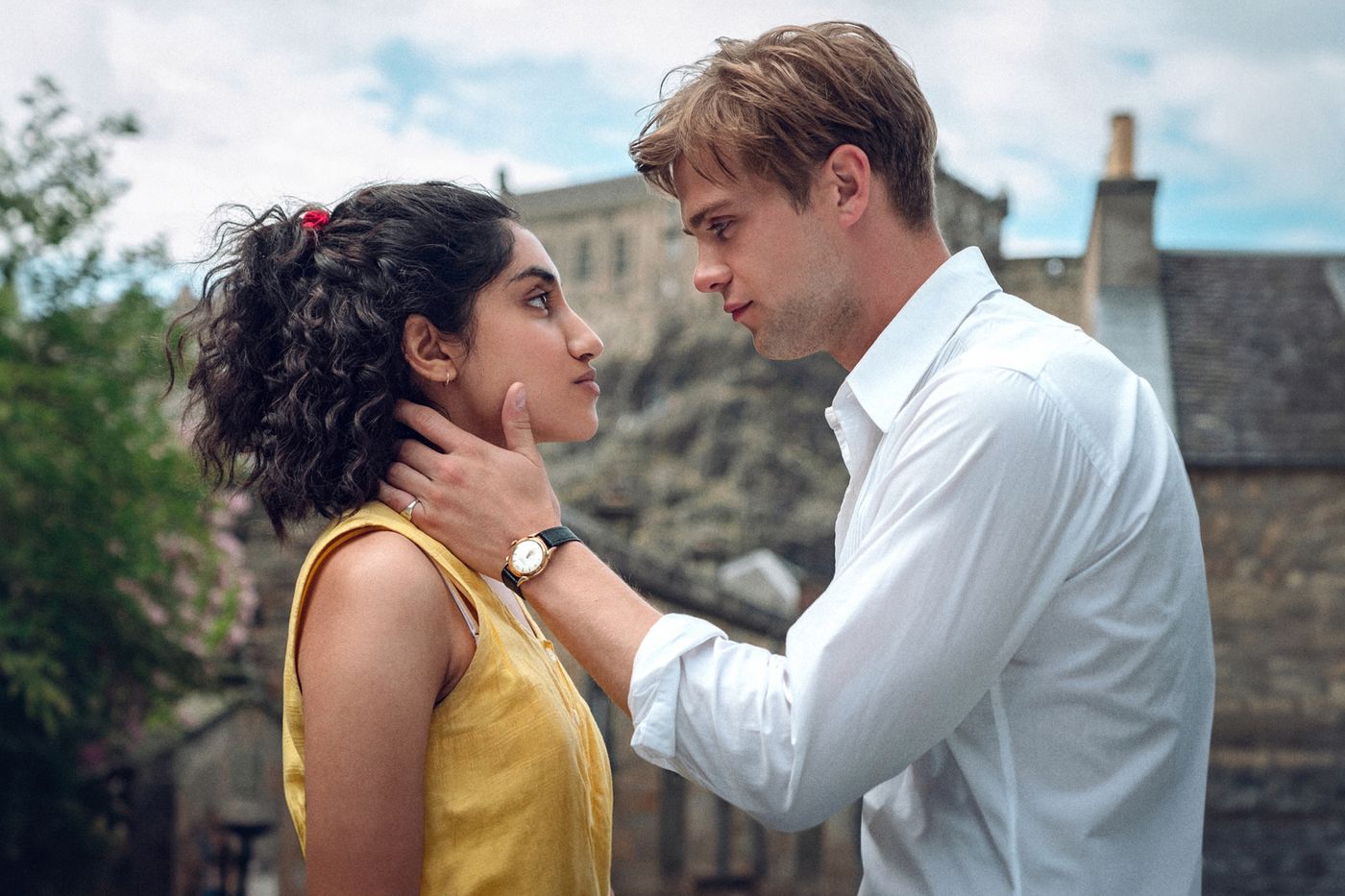
David Nicholls’s novel that traces the relationship between two potential lovers on the same day over the course of multiple decades was made into a largely panned movie in 2011. In 2024, the book has finally been adapted the way it always should have been: as a television series. Structurally, it makes so much more sense for this narrative to unfold over episodes that each signify a different July 15 in the saga of fellow uni alums Emma Morley (Ambika Mod) and Dexter Mayhew (Leo Woodall). This approach, overseen by creator and lead writer Nicole Taylor, also gives the audience more time to absorb the idiosyncrasies of its two main characters and their shared dynamic. Unlike a two-hour rom-com, One Day can take its time to sit within quieter moments, allowing us to watch as the low-simmer chemistry between Emma and Dexter — Mod and Woodall are lovely together — starts to boil on a higher heat. After a few episodes, punctuated by some fantastic needle drops, you become deeply invested in their future, which makes the various twists and turns in their story that much more joyful and heartbreaking. If you’re looking for a romance that’s light yet substantive and touching without being cloying, make One Day your next date. —J.C.
➽ Read Fremont’s One Day series recap.
Tokyo Vice, Season Two (Max)
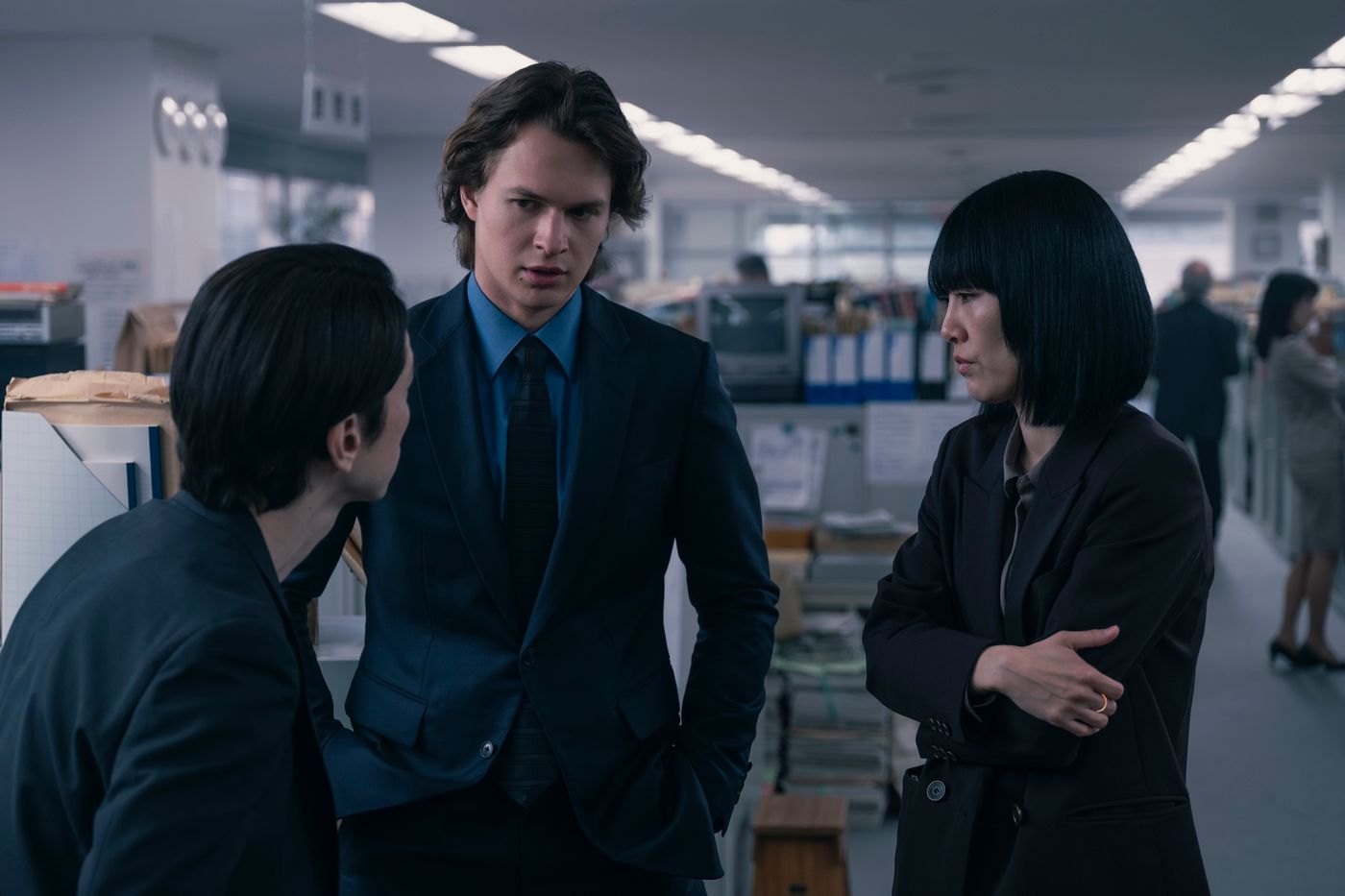
In a different era of HBO, Tokyo Vice would have been huge (and would have aired on the channel proper rather than its Max arm). A show about stylish Japanese gangsters and one plucky American expat reporter trying to penetrate the world of the yakuza in search of the truth — that’s The Sopranos crossed with The Newsroom with a pilot episode directed by Michael Mann to boot. But Tokyo Vice premiered in the in-between, as HBO was trying to figure out how it and Max would coexist, and the series never felt as if it were getting the marketing or promotional treatment it deserved. This is a coolly confident, precisely constructed series with a number of excellent performances (Ken Watanabe as a beleaguered detective chasing the yakuza; Rinko Kikuchi as an encouraging editor unwilling to cut Ansel Elgort’s reporter, Jake Adelstein, any slack; the scene-stealing Sho Kasamatsu as a gangster on the rise in his organization) and an evocative visual style that makes 1999 Tokyo look worthy of building a time machine to get to. Admittedly, the series probably makes the same mistake Jake does: He initially can’t get over how cool the yakuza seem to be — tattoos and designer suits and guns! But Tokyo Vice is never afraid to take a second look to reveal why a subculture takes a specific shape. It’s the kind of TV we should cherish while we can. —Roxana Hadadi
➽ Read Vulture critics Hadadi and Nicholas Quah’s conversation about Tokyo Vice and Andy Andersen’s recaps of season two.
True Detective: Night Country (HBO, Max)
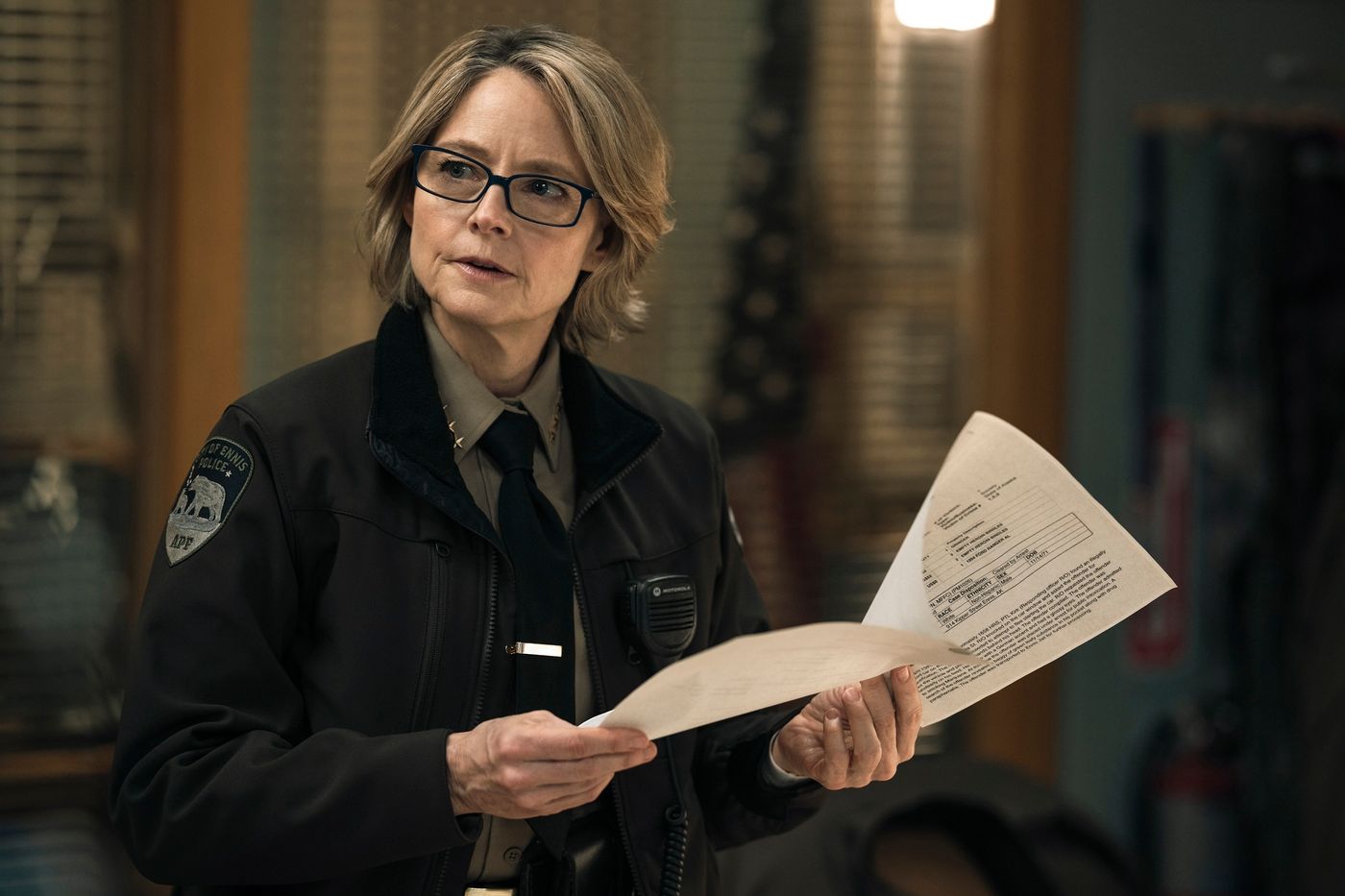
The lead performances from Jodie Foster and Kali Reis are the first and most crucial thing about this year’s return to the True Detective franchise, but the most exciting element is the success of showrunner Issa López’s larger concept for the series. It translates the anthology series into a new landscape while retaining so much of the creeping horror of the show’s first season, but it also brings a more pointed perspective. There’s a chilly noir vein alongside the horror now with a thematic interest in corruption and disenfranchisement that was present but not fully considered in the earlier seasons. It makes True Detective more cohesive than it has ever been before but without losing the sense of supernatural unease. —K.V.A.
➽ Read Hadadi’s review of True Detective: Night Country, Amanda Whiting’s recaps of the season, Hadadi’s interviews with star Kali Reis and showrunner Issa López, and Chaney’s close read of the ending.
The Traitors (Peacock)
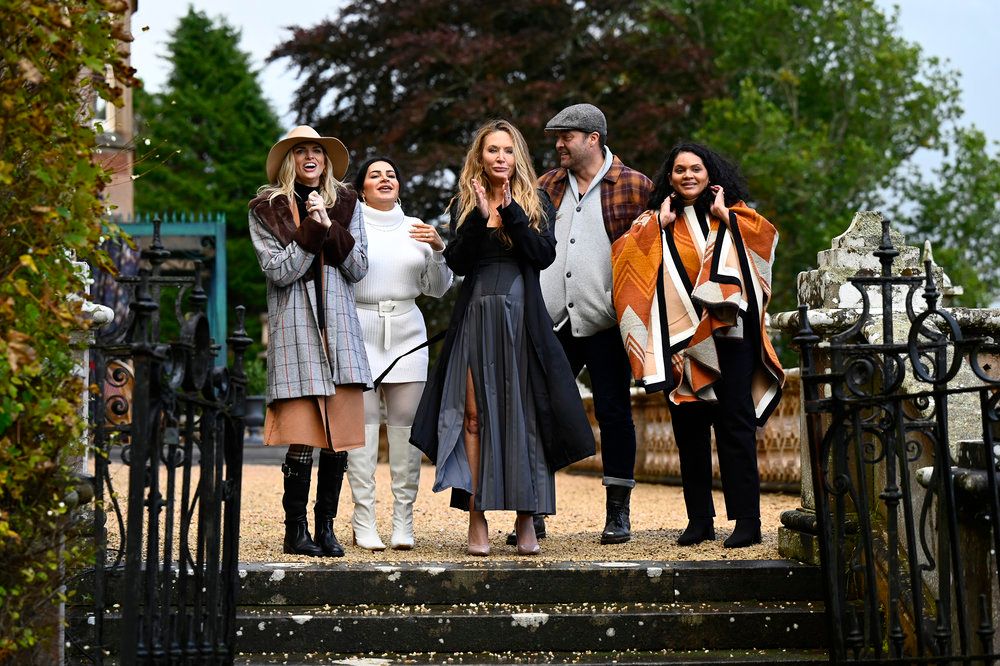
It’s been a while since a reality show shook up the genre (for Americans, at least), so it was a surprise when the proudly campy and ruthlessly deceitful The Traitors abandoned the premise that had done the said shaking up. No more normies competing with reality stars for a pot of cash that would be swiped from the hands of Faithful players if they let a Traitor make it to the final? Wouldn’t replacing the mix of genre veterans and regular-people newcomers with only genre veterans, who all seemingly know how to play the game in a predictable way, negate the joy of the show? Well, yes and no. Sure, the loss of normies who provide us a glimpse at actual, non-manufactured reality TV removes a certain tension from the series, as critic Nicholas Quah wrote at the season’s premiere. But The Traitors’ season two was a fascinating slice of reality TV as it is now, with different kinds of artifice from across the unscripted genre butting up against one another. How do players of competition-style games rely on brute force to gain allies, compared with Bravolebrities, who demand network loyalty, compared with a Bachelor who is out for blood? The Traitors was often impossible to predict, an odyssey of human behavior as shaped by television conditioning and the knowledge that the cameras are always rolling. Could the algorithm have written “Oh my Lord, sweet baby Jesus, not Ekin-Su”? It could not. —R.H.
➽ Read Molly Fitzpatrick’s recaps of The Traitors season two, Rebecca Alter’s profile of host Alan Cumming, Hadadi’s interview with contestant CT Tamburello, and Rosenstock’s close read of the edit.
Fargo (FX, Hulu)
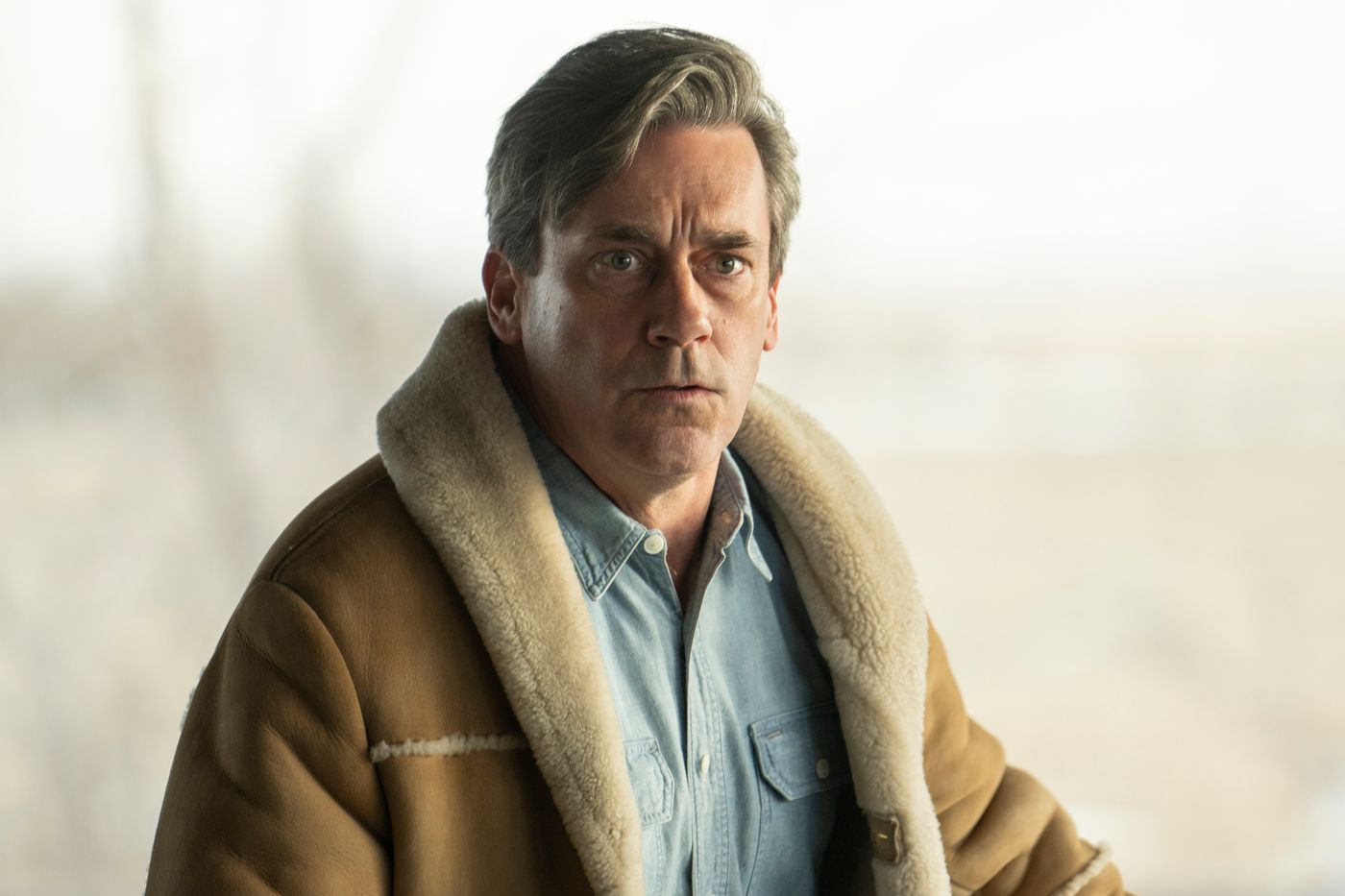
In its series form, Fargo has always been about the unique oddness that is America: its capitalism and its crime, its gender roles and its patriarchy, its absurdly wide gaps in wealth and power and how that difference begins to feel supernatural, uncanny, unreal. The fifth season of Noah Hawley’s adaptation took all that and flung it into the near past, using the rise of Donald Trump as a backbone for another portrait of this country, its moral failings, and its last holdouts of human decency. Everyone here is doing fantastic work — Juno Temple’s steely resolve and chameleonic physicality; Jennifer Jason Leigh’s cunning, me-first brand of feminism; Jon Hamm’s growling and nipple-pierced exceptionalism — but the season belongs to Sam Spruell’s Ole Munch, who encapsulates the series’ ideas about debt as a religious, financial, and cultural force of identity obliteration. It is peak Fargo, a return to form after wayward third and fourth seasons and a pointed commentary on how being in the black or the red is meaningless if you’ve already lost your soul. —R.H.
➽ Read Chaney’s review of Fargo season five, Hadadi’s interview with star Jennifer Jason Leigh, and Hadadi’s close read of the ending.